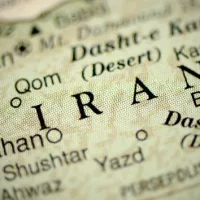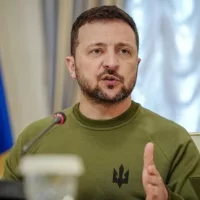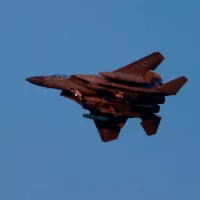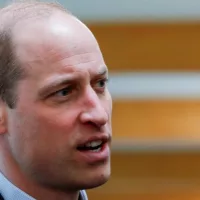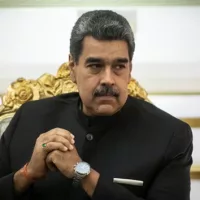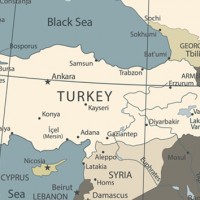
 iStock/Thinkstock(ISTANBUL) — Late Friday night, an ambiguous faction of the Turkish military launched a coup to take over the government from President Recep Tayyip Erdogan.
iStock/Thinkstock(ISTANBUL) — Late Friday night, an ambiguous faction of the Turkish military launched a coup to take over the government from President Recep Tayyip Erdogan.
Throughout the night, the group battled government supporters in the streets with military tanks.
Bridges into Istanbul were blocked. F-16 jets flew low missions over the city. The Parliament building was targeted with explosions and gunships attacked fleeing civilians.
The rebels took brief control of Turkish media channels and held military commanders loyal to the government hostage.
Over two hundred civilians and twenty-four coup plotters lost their lives, according to Turkey’s prime minister.
The Turkish government regained control of the country less than 24 hours after the coup began. ABC News answers some of the big questions surrounding this complex story.
How did the Turkish government respond to the coup?
President Erdogan tweeted to supporters, asking them to gather in the streets to defy the military takeover. He also appeared via FaceTime on CNN Turk, before the news organization was briefly overtaken by rebels.
Erdogan’s use of social media to defeat the coup was rather ironic, considering he has staunchly opposed social media and even banned sites within Turkey.
Matthew Bryza of the Atlantic Council, a former U.S. diplomat and Director for European Affairs on the National Security Council staff, said if Erdogan had been unable to make his appeal via social media, the coup would have had a much better chance of succeeding.
Later in the night, Erdogan landed in Istanbul and appeared on Turkish TV outside the airport, calling the “small group” of military members who carried out the coup “traitors” who would pay “a heavy price.”
Erdogan is keeping his word. Over the weekend, the government rounded up 6,000 people it claims were part of the opposition. Those detained included military personnel, judges, prosecutors and others deemed to have supported the failed coup, a presidential official said.
Eight thousand police officers have also been suspended from duty pending investigations as to whether they supported the coup.
Turkish media says among those currently detained are 2nd Army Commander Gen. Adem Huduti, who was in charge of security along the Syria and Iraq borders, as well as Turkey’s top NATO commander who runs Incirlik air base in southern Turkey.
Incirlik is home to 1,500 U.S. service members involved in the fight against ISIS in Iraq and Syria. Operations from Incirlik were briefly suspended, but have since been restored.
Who is being accused of perpetrating the coup?
Erdogan immediately pointed the finger at Fetullah Gulen, a Turkish exile and Muslim cleric living in the mountains of Pennsylvania.
Gulen and Erdogan were once political allies before falling out over corruption allegations leveled at the Turkish president. Since then, Erdogan has frequently accused Gulen, who came to the U.S. in the late 1990s, of trying to overthrow the Turkish government.
Gulen is believed to have support among some members of the Turkish military. His movement, called Hizmet, which means “service,” includes think tanks, various media enterprises and schools in many countries, including charter schools in the U.S.
On Saturday, Erdogan called for the U.S. to hand over Gulen.
The cleric has denied any involvement and issued a statement condemning the failed coup.
How is the U.S. responding?
During the coup, the State Department encouraged U.S. citizens in Turkey to seek shelter and stay indoors.
The FAA prohibited U.S. carriers from flying to or from Istanbul and Ankara.
As the coup unfolded, the White House released a statement, saying that President Obama and Secretary of State John Kerry urged “all parties in Turkey” to “support the democratically-elected Government of Turkey, show restraint, and avoid any violence or bloodshed.”
The early declaration of support from the U.S. has started to sour as Erdogan has accused the U.S. of harboring Gulen and defying demands to return him to Turkey.
On Monday at a press conference from Brussels, Kerry said that the U.S. has not received a formal request for Gulen’s extradition.
“Specifically, though, President Erdogan obviously in his public comments the other day called on the United States to return him to Turkey,” Kerry told reporters. “I made it clear to the foreign minister there is indeed a very formal process for that, and there has” to be a formal extradition requirement –- request submitted through the appropriate channels, legal channels. There is a standard under our system of law that applies to that.”
On Monday, the White House said an extradition request must meet a specific set of standards, including evidence of wrongdoing.
Erdogan’s office said Monday it hopes to submit that formal request “as soon as possible,” and will present evidence as part of that extradition request.
Also Monday, the U.S. Ambassador to Turkey, John Bass, issued his own rebuke of Erdogan’s accusations.
“Some news reports –- and, unfortunately, some public figures –- have speculated that the United States in some way supported the coup attempt,” the ambassador wrote in a public statement. “This is categorically untrue, and such speculation is harmful to the decades-long friendship between two great nations.”
What happens next?
The implications of this coup, despite its failure, are still potentially significant and complex.
For instance, a spokesman for German Chancellor Angela Merkel has warned that Erdogan’s threat to reinstate the death penalty would end the conversation about Turkey’s inclusion to the European Union.
The concerns over the death penalty tie into a larger call from western leaders that Erdogan not seek retribution. The EU’s foreign policy chief said the coup shouldn’t be an “excuse” to break from the democratic process.
Erdogan called the coup a “gift from God” and an opportunity to form a “new Turkey.”
“I don’t think many people saw this coming,” said Sir Peter Westmacott, former British Ambassador to Turkey.
He called the coup’s planning “more extensive than many people recognized.” The sheer number of senior military members involved combined with the Gulen movement threatens Turkey’s secularism, Westmacott said.
But if Erdogan takes advantage of the coup to grab power away from these groups unlawfully, it could complicate his relationship with NATO, of which Turkey has been a member since 1952.
“NATO also has a requirement with respect to democracy, and NATO will indeed measure very carefully what is happening,” Kerry said Monday. “And my hope is that Turkey is going to move in ways that do respect what they have said to me many times is the bedrock of their country. I mean, I spoke with the foreign minister three times in the last days, and he assured me that they fully intended to respect the democratic process and the law.”
Yet despite this subtle threat, it’s not likely that Turkey would lose its status as a member state.
Turkey retained NATO membership throughout its previous three coups in 1960, 1971, and 1980.
Unlike the United Nations and the EU, there is no mechanism to suspend NATO members — in fact, no member has ever been expelled.
The final implication is Turkey’s role in the global coalition fighting ISIS.
In the past, Erdogan has revoked the U.S. military’s ability to use the Incirlik air base as a launch point for its missions in the Middle East. If U.S.-Turkey relations worsen and he chooses to do so again, the U.S. loses a vital strategic position during a critical point in the war against ISIS.
Copyright © 2016, ABC Radio. All rights reserved.






